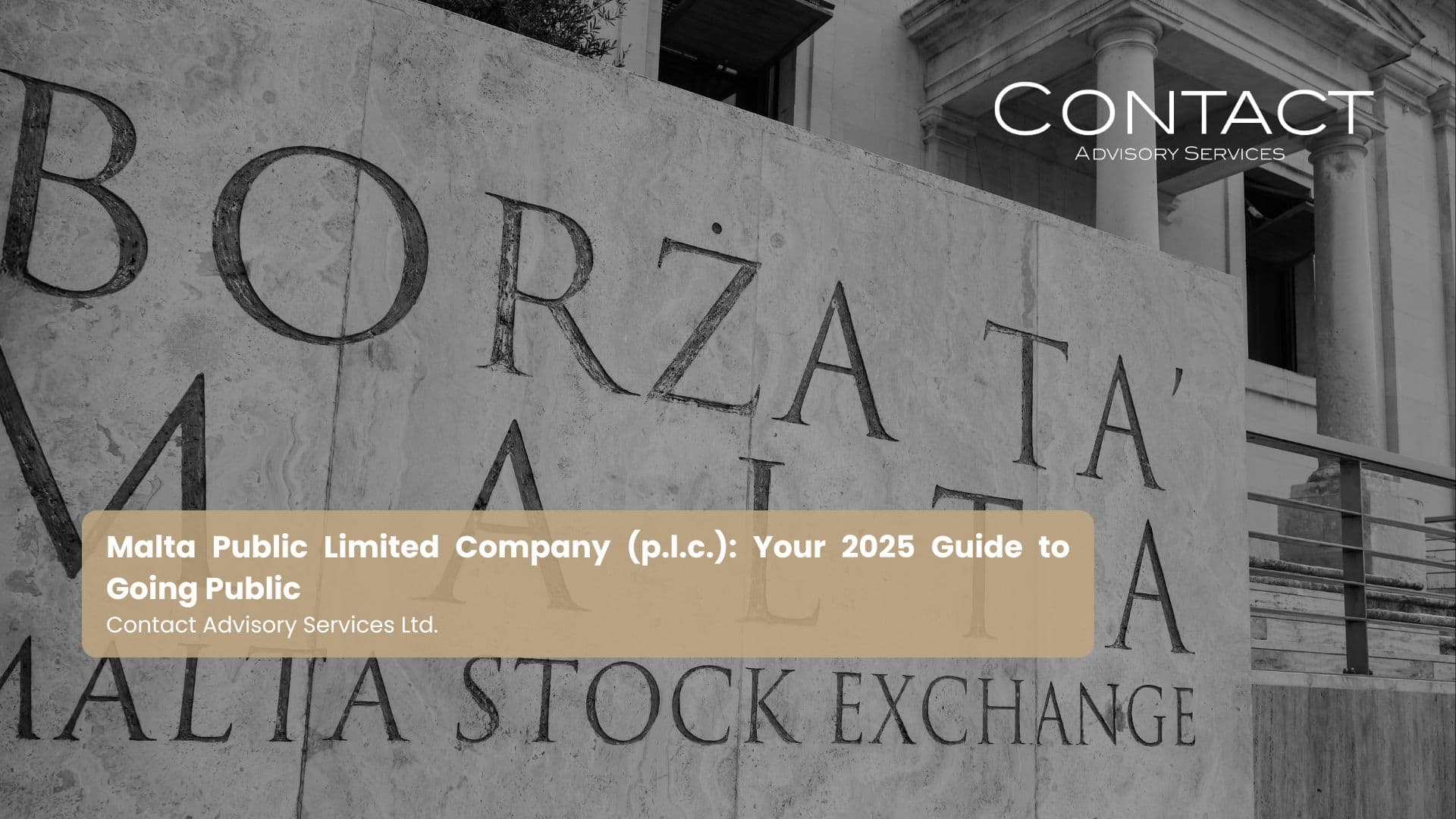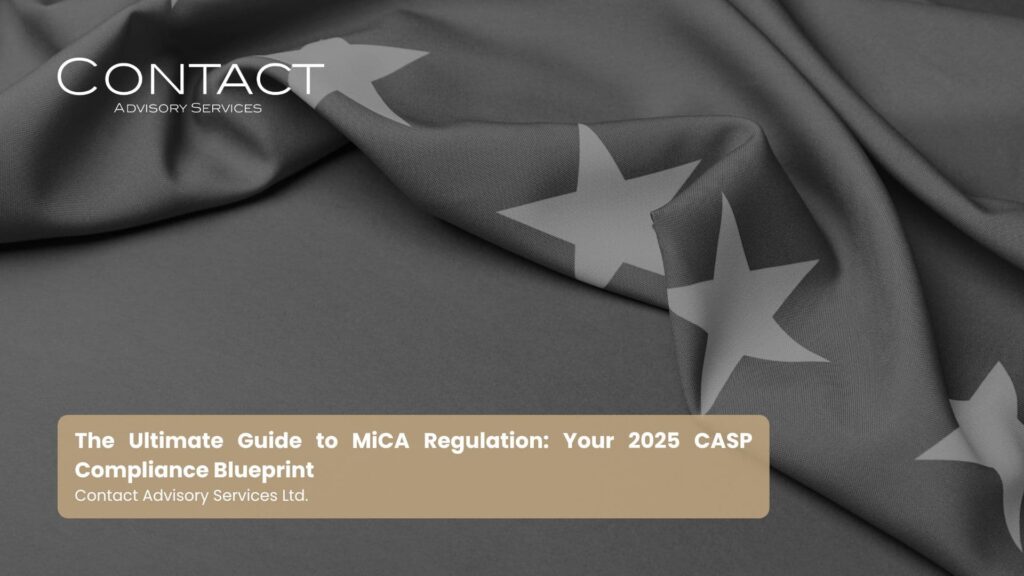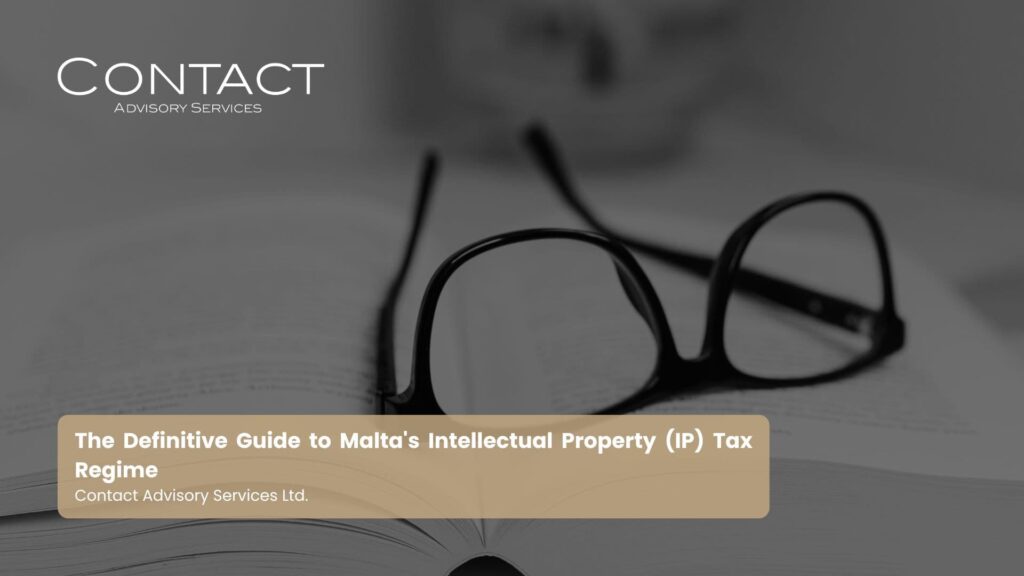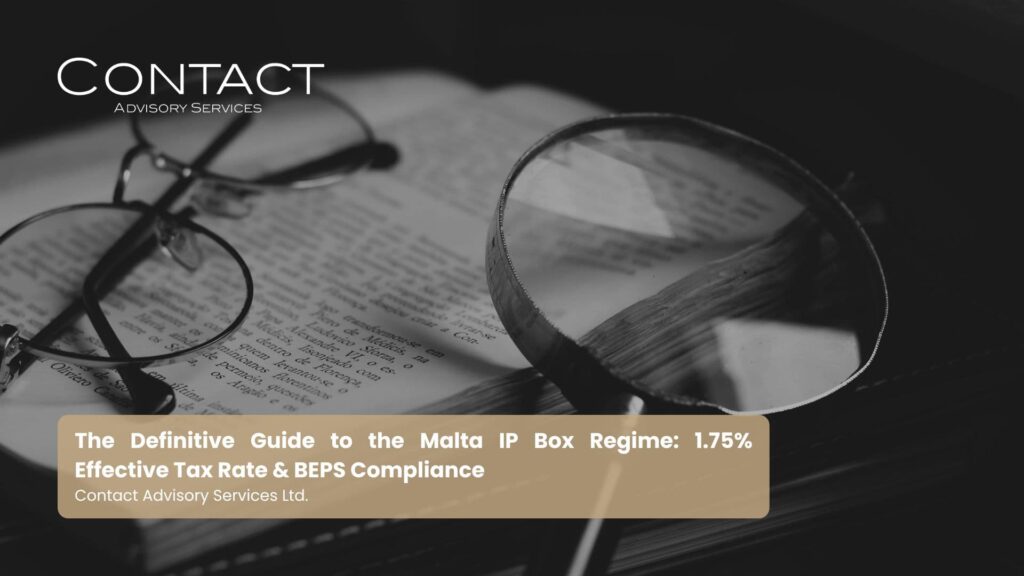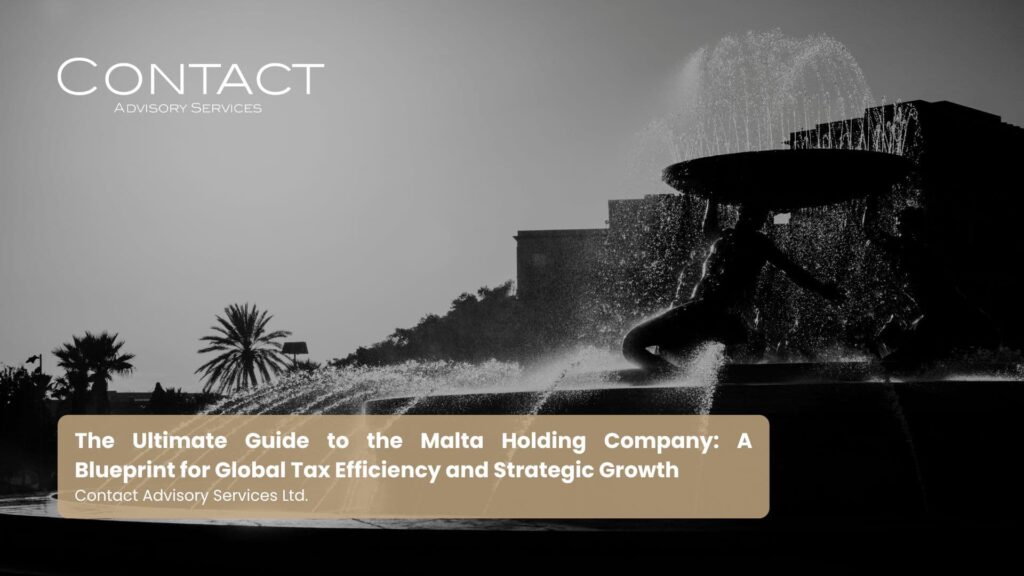Malta Public Limited Company (p.l.c.): A Comprehensive 2025 Guide to Formation & Requirements
When your business strategy includes significant scaling, raising substantial capital, or achieving the highest level of corporate prestige, the standard private company structure may not be sufficient. For large enterprises with ambitious growth plans, Malta offers a powerful vehicle: the Malta Public Limited Company (p.l.c.).
Unlike its private counterpart, the p.l.c. is designed for a grander scale. It can offer shares to the public, paving the way for an Initial Public Offering (IPO) and a listing on the Malta Stock Exchange or other international markets. This makes it the premier choice for established businesses aiming to attract significant investment and enhance their corporate standing.
Navigating the path to establishing a p.l.c. is inherently more complex than for a private entity. The legal and regulatory framework is more stringent, reflecting the company’s public-facing nature and its responsibilities to a wider pool of investors. This guide provides a clear roadmap, detailing the essential requirements, the formation process, the significant advantages, and the key considerations for successfully launching your Malta p.l.c.
Why a Malta p.l.c. is the Gateway to Major Leagues: The Advantages Explained
Opting for a Public Limited Company structure is a strategic decision driven by long-term growth ambitions. The benefits are tailored for businesses ready to operate on a larger, public stage.
- Access to Capital Markets: The single most important advantage is the ability to raise capital by offering shares to the public. This opens doors to funding through an Initial Public Offering (IPO), which can finance major expansions, acquisitions, or large-scale projects.
- Enhanced Corporate Prestige and Credibility: A p.l.c. status, especially when listed on a stock exchange, signals a high level of transparency, stability, and adherence to rigorous corporate governance standards. This enhances its standing with investors, financial institutions, clients, and potential partners.
- Liquidity for Shareholders: Shares in a p.l.c. are freely transferable, allowing shareholders to buy and sell their holdings on the open market (if listed). This provides liquidity that is not available in a private company, making it a more attractive investment.
- Growth and Expansion Opportunities: With easier access to substantial finance, a p.l.c. is better positioned for ambitious growth, mergers, and acquisitions.
- Valuation Transparency: The value of shares in a publicly listed company can be easily and constantly verified through market trading, providing a clear valuation of the business.
- Access to the EU Single Market: As a Maltese company, a p.l.c. benefits from full access to the European Union’s single market, facilitating seamless trade and operations across all member states.
Meeting the Standard: Essential Requirements for Your Malta p.l.c.
The foundational requirements for a p.l.c. are significantly more demanding than for a private company, reflecting its public accountability.
- Minimum Shareholders: A p.l.c. requires a minimum of two shareholders upon formation.
- Minimum Directors: At least two directors are mandatory for a Malta p.l.c. This reflects the need for more robust governance and oversight in a public entity. Directors are subject to stringent duties of care and skill.
- Company Secretary: Appointing at least one company secretary is a mandatory requirement. The individual appointed must be deemed to have the requisite knowledge and experience to handle the complex compliance of a p.l.c.
- Minimum Share Capital: The minimum authorized share capital for a Malta Public Limited Company is €46,587.47. [2, 4] Of this amount, at least 25% (€11,646.87) must be paid up before the company is registered and the funds deposited into a bank account in the company’s name.
- Registered Office Address: A p.l.c. must maintain a physical registered office address in Malta, which serves as its official address for all legal and regulatory correspondence.
- Unique Company Name: The company name must be unique and end with the suffix “Public Limited Company” or “p.l.c.”.
The Blueprint: Your Step-by-Step Guide to Malta p.l.c. Formation
The formation of a p.l.c. is a formal and meticulous process. Engaging professional corporate service providers is not just recommended, but essential for navigating the heightened regulatory requirements.
- Engage Professional Advisors: Appoint an authorized company formation agent, legal advisors, and potentially a sponsoring stockbroker if a public listing is the goal. Their expertise is crucial for drafting documents, ensuring compliance, and liaising with authorities like the Malta Business Registry (MBR) and the Malta Financial Services Authority (MFSA).
- Due Diligence & KYC Compliance: All proposed directors, shareholders, and beneficial owners must undergo rigorous Know Your Customer (KYC) and Anti-Money Laundering (AML) verification. This involves providing certified identification documents, proof of address, and professional references.
- Company Name Reservation: Your chosen name, ending in “p.l.c.”, is checked for availability and reserved with the MBR.
- Drafting the Memorandum and Articles of Association (M&A): This is the company’s constitution. For a p.l.c., the M&A is a more complex document than for an Ltd. It must be drafted to comply with the Companies Act and, if applicable, the listing rules of the Malta Stock Exchange. It outlines the company’s objects, its substantial share capital, and the regulations governing its operation.
- Drafting a Prospectus (if offering shares to the public): If the company intends to raise funds from the public, a detailed prospectus must be prepared. This document must be approved by the Listing Authority at the MFSA and provides comprehensive information about the company, its financials, the securities being offered, and the associated risks.
- Share Capital Deposit: The minimum paid-up portion of the share capital (€11,646.87 or more) must be deposited into a bank account opened for the company “in formation.” Proof of this deposit is required for registration.
- Application Submission to MBR: A complete application package is submitted to the MBR. This includes the signed M&A, KYC documentation, proof of share capital deposit, and details of all officers. The process is handled electronically.
- Registration & Certificate Issuance: Once the MBR verifies that all requirements have been met, it issues the Certificate of Registration. The company is now a legal entity.
- Post-Registration and Listing Process: After incorporation, the company must obtain a Tax Identification Number (TIN) and register for VAT if necessary.If pursuing a stock exchange listing, the process continues with the formal application for admissibility to listing, which is a separate but concurrent process managed with the MFSA and the Malta Stock Exchange.
Weighing the Options: Potential Considerations & Downsides
The power of a p.l.c. comes with significant responsibilities and complexities that must be carefully considered.
- Higher Costs: Setup, registration, and ongoing maintenance costs are substantially higher than for a private company. This includes higher MBR fees, costs for legal and financial advisors, and potential stock exchange listing and maintenance fees.
- Increased Regulatory Burden: Public companies face a much heavier compliance and reporting burden. They must adhere to stricter corporate governance codes, IFRS-compliant financial reporting, and potentially continuous disclosure obligations if listed.
- Public Disclosure: A p.l.c. must make significant information public, including detailed annual audited financial statements. This offers less privacy compared to an Ltd.
- Complexity and Time: The formation and, particularly, the listing process are far more complex and time-consuming than for a private company, often taking several months to complete.
- Loss of Full Control: By offering shares to the public, original owners dilute their control and become accountable to a wider base of shareholders and the market at large.
Understanding the Investment: Costs Involved in Malta p.l.c. Setup
The costs for establishing a p.l.c. are higher due to the increased capital and compliance requirements.
- MBR Registration Fee: The fee paid to the Malta Business Registry is calculated based on the authorized share capital. For a p.l.c. with the minimum capital of €46,587.46, the electronic registration fee is in the range of €380-€650. It is crucial to verify the current fee schedule with the MBR.
- Minimum Paid-Up Share Capital: This is not a fee, but a capital injection into your company. You must deposit at least €11,646.87.
- Professional Service Fees: These are the most significant costs and will vary widely. They cover company formation, legal advice, drafting of the M&A and prospectus, sponsorship for listing, and more. Expect these to be several thousand Euros or significantly more depending on complexity.
- Ongoing Annual Costs: These include fees for the registered office, company secretarial services, auditing, and annual MBR filings. For a listed company, there will also be annual stock exchange fees.
Life After Formation: Ongoing Compliance for Your Malta p.l.c.
Maintaining a p.l.c. in good standing requires rigorous and continuous compliance.
- Annual Return: A comprehensive Annual Return must be filed with the MBR each year.
- Audited Financial Statements: Preparing and filing annual financial statements that comply with International Financial Reporting Standards (IFRS) is mandatory. These statements must be audited by a certified Maltese auditor.
- Corporate Tax Return: An annual corporate income tax return must be filed with the Maltese tax authorities.
- General Meetings: Annual General Meetings (AGMs) must be held, and minutes must be properly recorded.
- Adherence to Corporate Governance Codes: PLCs are expected to adhere to the Code of Principles of Good Corporate Governance, ensuring transparency, accountability, and fair treatment of shareholders.
- Continuous Disclosure (if listed): Listed companies have an obligation to immediately inform the market of any price-sensitive information.
How Contact Advisory Services Can Pilot Your p.l.c. Formation
Establishing a Public Limited Company in Malta is a major corporate undertaking. The path is complex and laden with critical regulatory checkpoints. Success demands expert, hands-on guidance from professionals who master this specific landscape.
As an MFSA Authorised Company Services Provider, we specialize in high-level corporate structuring, including the formation and ongoing governance of Malta Public Limited Companies.
Our expertise covers:
- High-Level Consultation: Assessing your business’s readiness for p.l.c. status and advising on the strategic implications.
- Complex Documentation: Managing the entire documentation process, from drafting a robust M&A to coordinating the preparation of a compliant prospectus for public offerings.
- Regulatory Liaison: Acting as your single point of contact with the Malta Business Registry (MBR), the MFSA, and the Malta Stock Exchange.
- Post-Formation and Listing Support: Guiding you through tax registration, bank account setup, and the entire process of admission to listing.
- Premier Ongoing Services: Providing expert company secretarial, registered office, and comprehensive compliance services to ensure you meet the stringent ongoing obligations of a p.l.c.
We provide the strategic support necessary to navigate the complexities of a p.l.c. formation, allowing you to focus on your large-scale business objectives.
Ready to elevate your company to public status? Get in touch with us today for a strategic consultation:
Email: info@contact.com.mt
Learn More: contact.com.mt/malta-company-formation/
Conclusion: Is the Malta p.l.c. the Right Structure for You?
The Malta Public Limited Company offers a robust framework for businesses aiming for the pinnacle of corporate growth and public investment. With its ability to access capital markets and its enhanced prestige, it is the undisputed choice for large enterprises planning an IPO or seeking to attract a wider investment base.
This path, however, comes with significantly higher entry requirements—notably a minimum share capital of €46,587.47 and the need for at least two directors—and a much heavier burden of cost and ongoing regulatory compliance. The decision to form a p.l.c. should be driven by a clear, long-term strategy that requires public capital and can support the associated administrative demands.
For the right enterprise, the Malta p.l.c. is not just a corporate structure; it is a strategic tool that unlocks unparalleled opportunities for funding, expansion, and market leadership within the EU and beyond.

